Insuring an RV in BC
Insuring an RV in BC
Do your summer plans include some quality RV road-tripping? If so, there are some key pieces of information you will want to be aware of before you head out on the open road in BC this summer.That said, insuring your RV should be at the top of your list so that you are making sure you are following the proper rules for BC travel, as well as being protected from a wide range of potential issues that could occur while on the road.
Based on government rules in BC, recreational vehicles (RV), such as motorhomes, fifth wheels and travel trailers must be both registered and properly insured, if being used on roadways.
Having said that, there will be different levels as well as types of insurance coverage that will be most suitable for individual needs. Fortunately, this is where insurance agents come in. They can help you find the best coverage for your unique RV travel plans.
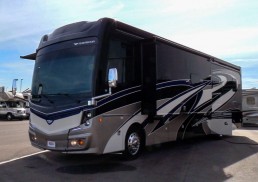
Types of Insurance Coverage
For example, some main types of insurance you will want to consider will include, liability insurance, in the event you may be found responsible for an accident that causes injury or damage to another individual or their property.
In the case of damage done to your RV by another party, such as vandalism, theft, etc, there is also insurance to cover these unwanted, yet, often unpreventable occurrences.
In the event, you or a loved one is also injured in an accident while travelling in your RV, l coverage also exists to help with expenses such as medical and rehabilitation costs.
Some further coverage may also be worth a major second thought. Such as having insurance in place for loss or damage to your personal belongings and contents. As well, you may want to look into coverage for replacement costs for the RV, itself as this can definitely provide some added peace of mind that you are being adequately protected.
Overall, it is definitely worth turning to an insurance agent to help advise you on these range of coverage options.
Best Possible Insurance Coverage
In addition to finding the most appropriate type of coverage, insurance agents can also provide support when it comes to identifying the right level of coverage, not to mention at the best price possible as well.
Depending on the type of recreational vehicle you are insuring, all of these elements will vary, as an RV, motorhome, and a travel trailer will all require different levels of coverage.
Furthermore, sometimes there is the option of choosing coverage that can be added onto your current insurance policy. Other times, it may be more suitable to obtain stand-alone coverage to satisfy your personal RV needs.
In the end, all of these decisions will play a very important role in your ability to enjoy your recreational travel time this summer.
For more information on the type of insurance coverage, contact Leaders Insurance. We are here to help you find the best policy for your needs, and can offer you our expert advice on all things related to insuring an RV in BC. After having the proper insurance in place, the BC roads and your summer adventures await!
Do you Need Special Insurance for a Cottage or Cabin?
Do you Need Special Insurance for a Cottage or Cabin?
If you own a cottage or a cabin, it is likely an important part of your life. While a cottage may serve a variety of purposes for you, whether it is a favourite family getaway spot or a year ‘round place of residence, there will definitely be one major consideration you will want to make. This being, having the right type of insurance coverage for your needs.Since insurance for recreational properties does differ from primary home insurance, it is important to look into your options for specialized insurance coverage that is geared towards cottage and cabin purposes.
When examining insurance options, the first step is to begin with deciding what your exact plans will be for your cottage moving forward, as this will help guide you in the right direction in terms of finding the type of insurance that will align best with these plans.

How Will You Use Your Cottage?
During this stage, you will want to identify how much time you will typically spend at your cottage. For example, will you occupy it all year round or will it be more of a seasonal spot only? In the end, each of these plans will factor into the type of insurance coverage you will need.
If your cottage is your secondary residence and you will be the only occupant, then it is possible for insurers to add this onto your primary home insurance policy. With that being said, not all coverage is created equally and there will be some exclusions. Therefore, it is best to look at the specifics of each policy and what will be covered.
What Coverage Will Meet Your Needs?
When it comes to separate cottage insurance policies, often referred to as recreational property insurance, there are several insurance packages worth considering. Additional coverage for seasonal properties that are only in use some of the time, can include: risk of damages to the property and structure, such as vandalism, fire and smoke damage, water damage, or any other such perils. Fortunately, also known as Peril Policies, these plans will take into account the unique cottage insurance needs you may encounter.
Liability insurance is also worth considering as this will help protect you in the event someone is injured on your property. This type of insurance also covered issues in relationship to situations when you are deemed responsible for causing damage to a neighbouring property or home.
Contents Coverage is another type of insurance to factor in, as there are likely items that you will leave at the property all year round. While any belongings, such as clothing or personal items that you take back and forth with you can be covered under primary home insurance, items remaining in the cottage will also require special insurance.
Lastly, if you store watercraft, such as canoes, sailboats, power boats, etc. at your cottage, some extra coverage will be needed as well to protect this valuable pieces of equipments.
Since you may have additional cottage or cabin insurance needs not listed here, then it is best to always contact a reputable insurance group to find out more about the specific insurance policies that are designed to help protect your property and your belongings.
Contact Leaders Insurance to learn more about the recreational property packages that we can put in place for you and how these special insurance policies can enable you to enjoy your time at your ‘home away from home’, however you choose to do so.
Why you Should Replace a Car Seat After a Car Accident
Why you Should Replace a Car Seat After a Car Accident
While car accidents are the last thing we want to happen, especially while driving with children in the vehicle, sometimes they are simply unavoidable. With that being said, it is essential that there are safety measures put in place to protect yourself and your loved ones from harm.One of the questions likely on the minds of many parents and drivers is whether or not a child’s car seat should be replaced following an accident. Many experts in this field will answer, yes to this question. The reality is that any damage to the car seat can further impact a child’s safety while they are occupying that seat. In the event, there is another accident, even a minor one, the car seat may not provide the level of protection it is meant to.
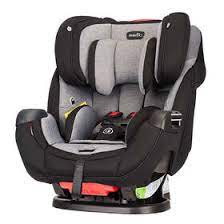
When Should You Replace a Car Seat?
There are a few different scenarios that can help you make the right call when it comes to replacing a child’s car seat and this begins with identifying the nature or severity of the collision.
Moderate to Severe Collisions
First of all, it is absolutely recommended that a child’s car or booster seat is replaced after a moderate to severe car accident. If you are unsure of whether or not a car accident falls under this category, you can consider facts such as whether the car’s functionality has at all been affected as this can signify a moderate crash.
In terms of a more severe crash, criteria for this relates more to any damage to the vehicle structure, that makes the car unsafe to drive. In these cases, it is definitely best to opt to replace the car seat. Even if during the time of the accident, a child was not in the car seat, it is still necessary to identify when a car seat should be replaced.
Minor Collisions
Secondly, it is also important to consider whether you should replace the car seat if you were involved in a minor collision. With a minor crash, the damage to your vehicle may be mostly unnoticeable, even invisible. However, a minor crash can be classified as one where air bags did not need to be deployed, and when the vehicle can be driven away afterwards without immediate safety concerns, such as damage to the drivers’s side door. Additionally, in the absence of injuries to any of the passengers, this points to a minor accident as well.
With a minor collision, it is likely that the car seat is safe enough to continue use, however, the car seat must first be inspected for zero signs of damage. All things considered, it is recommended that you consult the car seat’s manufacturing guide to find out what is advised for that specific type of car seat. The company will state one way or another whether the car seat needs to be replaced following a minor fender bender.
The principal that it is always better to be safe than sorry, is certainly a relevant one for this type of situation. That being said, replacing a car seat that was involved in any type collision is definitely worth serious consideration, and highly recommended in the case of a moderate to severe accident.
Car Seat Reimbursement
In the event, you have been involved in a car accident and plan to move forward with replacing your car seat, as a BC resident, fortunately you may be able to be reimbursed for some of the costs associated with this. To find out more about car seat replacement eligibility, it is suggested that you can do some additional research, as well as speak more with an expert in this area.
Insurance Coverage
In the end, having the right insurance is also extremely important. To learn more about the types of vehicle insurance coverage, contact Leaders Insurance. We are more than happy to help with any of your insurance needs, and above all, we want to provide you with the added peace of mind of feeling safe while driving with your precious loved ones along for the ride.
Preventing Accidents While Away From Home This Summer
Preventing Accidents While Away From Home This Summer
The summer is a wonderful time to explore different parts of the your region as well as venturing out a little bit further. Of course, you want to enjoy your time, and the last thing you want to worry about is experiencing accidents or injury.If you are planning a get away this summer, here are some tips to help prevent accidents while you spend some time away from home and enjoy the change of scenery.

Road Trip Safety
If you are travelling by car, in order to minimize the risk of having roadside accidents, the first step you can take is to plan ahead and keep safety at the forefront of your mind.
First of all, you will want to get your car ready for the road. Performing a vehicle maintenance check is an important step towards road trip safety.
Some steps included in your car safety check should include: checking and monitoring tire pressure, ensuring all fluids, such as transmission, steering, brake, motor oil, windshield wiper, and coolant levels are topped up. You will also want to include testing the battery and making sure you have a fully stocked emergency roadside kit.
Other key safe driving tips should include performing safe driving above all. Focusing on the road is an important part of safe driving practices, especially when you may be dealing with busy roads, that are congested with other motorists.
Whether or not you are driving alone or have family or friends in the vehicle, it is necessary that you reduce distractions. While it best to have your phone handy in case you do break down or have an accident, keeping your mobile device out of sight is fundamentally important and can greatly reduce your risk of being involved in a driving accident.
Campfire Safety
One of the ways you may also be planning to enjoy your summer is by going camping. Whether you are close to home or have travelling a bit further in mind, it is important to take the time to consider how you will keep yourself and your travel companions safe.
Before you even head out, it is recommended that you research the area you are going to be occupying. For example, knowing about the rules of the campgrounds, as well as the local fire danger ratings is important. There may even be fire bans in the area that you need to be aware of, and you can monitor these on the Canadian Wildland Fire Information System.
If you you are ok to proceed with having campfires in this region, then you will want to be up-to-date with campfire safety. Overall, it is necessary to learn about the best location and conditions for building a fire, such as a spot that is flat and bare and as far away from dry grass and of course a forested area as well as anything else that is combustible.
Before you even build your fire, you will need to have access to a water source, a bucket, or another extinguishing material. It is essential that you always keep a close eye on your campfire and ensure the fire is fully put out before leaving the area unattended.
Ultimately, you are the one responsible for your campfire, and to avoid accidents you should adequately review campfire safety as well as fire safety, in general with all individuals you are camping with.
In order to ensure everyone remains safe, the best course of action is to plan ahead for a range of potential incidences. With that being said, sometimes accidents do happen and you will want to be prepared for this as well.
Having the Right Insurance
While you can do everything in your power to avoid accidents this summer, it is still important to have the right insurance to help with a variety of situations that you may still encounter. Having both the best vehicle insurance, medical and travel insurance, as well as home insurance to keep your home safe while you are away, can make a world of difference.
Contact Leaders Insurance to learn more about our insurance policies and how we can contribute the helping you stay safe this summer.
Why invest in Cyber Insurance?
Why Invest in Cyber Insurance?
Owning a business these days means that online operations have become an even greater reality for many companies. For this reason, it is definitely a good idea that businesses consider investing in cyber insurance. If your company has recently made the move to using more online services and don’t have cyber insurance, read on to learn more about this type of valuable insurance.

Cyber Insurance - Why is it needed?
Having cyber insurance can allow you to keep your business safe in a variety of ways. With that being said, cyber security is also an important part of business operations, as it is the first line of defence for your e-commerce and other digital platforms.
Since many businesses are operating in a variety of ways where sensitive information, including the online transfer of funds, it is absolutely worth having the proper cyber security in place.
For example, private business details, as well as sensitive client information, such as bank accounts, addresses, emails, etc. can all be breached if secure online measures are not effectively implemented. Without these actions, not only will this affect your business information, but also that of your client’s, and this can be detrimental to your company’s reputation.
However, even with cyber security in place, breaches can still happen, as cyber thieves continue to find creative and underhanded ways of accessing private information that does not belong to them.
With this being the current and likely future affairs of our online world, having cyber insurance can certainly make a difference in protecting your company from a variety of severe financial and reputation-breaking outcomes.
As previously mentioned, companies should make having their own cyber security systems in place a top priority. Insurance companies will then be able to act as an added layer of protection for the more unpreventable types of online threats.
In addition to software security safeguards, businesses can also be proactive by educating their employees about the wide range of virtual threats. For example, employee’s actions can help prevent these attacks, and along with being informed, and taking the necessary precautions, your company will have a much better chance of avoiding cyber-attacks.
Cyber Insurance - What does it cover?
Cyber insurance packages, while can’t necessary help restore a company’s reputation, can assist when it comes to various cyber security breaches that can result in the significant loss of income.
Whether this loss of income is due to a company’s shutdown, loss of clientele, or financial theft, cyber insurance can play an important role in a company’s ability to survive. In the event a company is sued and requires legal services and other financial advisor, this type of insurance is also design to help provide aid to these kinds of financial situations.
Especially if a business deals with high volumes of financial and sensitive information, cyber insurance is highly beneficial and a recommended part of a company’s cyber security preparedness plan.
The world of cyber security and cyber insurance is only growing each year. Therefore, it is well-worth looking into obtaining this type of insurance if you haven’t already, as soon as possible in order to protect your business.
As cyber threats evolve on a near daily basis, there are even new cyber risks that haven’t even been detected yet. With that being said, by having cyber insurance in place, you can plan for both the existing and the future cyber security threats by having the proper insurance in place.
Contacting an Insurance Agent
You will of course require specific insurance coverage for the unique needs of your business. To help ensure you have the best coverage, you can reach out to an insurance agent who is well-versed in this area.
Connect with our experts at Leaders Insurance to find out more about the cyber insurance policies we offer and let us help you protect your business both today – as well as into the future.
Why Insurance Rates Can Go Up
It is possible for every person insured with a given carrier to have a rate increase. Insurance rates can rise due to increased claim activity. If an insurance carrier is losing money, rates can increase. Also, if there appears to be a higher level of risk, an insurer will increase the value of the insurance on the policy to protect them from further exposure. Insurance policy renewals are a standard part of insurance. All policies renew and insurance companies have the ability to recalculate your insurance rate. Use this time of year to mark your renewal dates in 2020 so you know when to review your policy and think about possible changes.
Find an Insurance Broker that has a large network
When looking for insurance coverage, you want to partner with an insurance agency that has access to a wide network of insurers. This is key to getting the best coverage and the most competitive rates.
At Leaders Insurance, we can often source competitive insurance coverage where other agencies can’t. Our team has a wealth of expertise and we service clients not only in the Tri- Cities but also across the Lower Mainland and BC as a whole. As you plan out your year, please feel free to reach out to us so we can provide you with a quote for all your insurance needs. Let’s make 2020 your best year ever!
Let’s make 2020 your best year ever!
Happy New Year! Are your insurance renewals up-to-date?
A New Year brings a clean slate of sorts and it’s time to setup the year for success. Whether you are a business owner, own a property or drive a vehicle – it’s important to check that all your current insurance policies are up-to-date and take note of when they are up for renewal. January is a perfect time to plan for the year head and we are here to help you through it.

What is an insurance renewal?
An insurance renewal is the standard length of time an insurance policy is in effect without an insurance company adjusting your rate. Of course, there are exceptions to every rule, and it is possible – on rare occasion – for your rate to change shortly after purchasing a new policy if you do not meet underwriting guidelines.
When Does an Insurance Policy Renew?
The renewal date of your insurance policy is based on the date your policy took effect. So, it could actually take place on any day of the year depending on when you originally started the policy. The other factor in determining your renewal date is the length of your policy period. Policies usually renew annually or semi-annually. The start of the year is a perfect time to take stock of when these renewals are coming due so you can plan ahead.
Renewal information is usually mailed or emailed to you 45 to 30 days in advance of your renewal. You will receive a declaration page along with other information explaining your policy. A new proof of insurance is usually enclosed with the declaration page.
What Should I Do When My Insurance is Close to its Renewal Date?
Look at your existing rate and see if you qualify for any further discounts. When you get your renewal reminder, this will help prompt you to do this review as sometimes insurance is easy to forget if you haven’t had the need to use it recently. It is a good time to contact your insurance agent to review your policy.
Why Insurance Rates Can Go Up
It is possible for every person insured with a given carrier to have a rate increase. Insurance rates can rise due to increased claim activity. If an insurance carrier is losing money, rates can increase. Also, if there appears to be a higher level of risk, an insurer will increase the value of the insurance on the policy to protect them from further exposure. Insurance policy renewals are a standard part of insurance. All policies renew and insurance companies have the ability to recalculate your insurance rate. Use this time of year to mark your renewal dates in 2020 so you know when to review your policy and think about possible changes.
Find an Insurance Broker that has a large network
When looking for insurance coverage, you want to partner with an insurance agency that has access to a wide network of insurers. This is key to getting the best coverage and the most competitive rates.
At Leaders Insurance, we can often source competitive insurance coverage where other agencies can’t. Our team has a wealth of expertise and we service clients not only in the Tri- Cities but also across the Lower Mainland and BC as a whole. As you plan out your year, please feel free to reach out to us so we can provide you with a quote for all your insurance needs. Let’s make 2020 your best year ever!
Let’s make 2020 your best year ever!
What Do I need to Think About if I'm Buying a Boat?
With the summer season quickly approaching, you may be looking forward to getting out on the open waters. With that said, if you are thinking about buying a boat, there are some important considerations you will want to make. As you take steps towards this exciting purchase, insurance will likely also be at the top of this list.First of all, let’s look at some of the key factors associated with boat ownership.
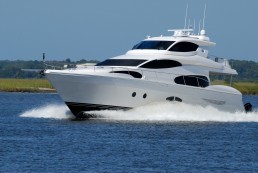
Boat Storage & Towing Needs
Whether you will use your boat at your cottage and store it there or travel with it frequently, it is important to be prepared to do all of this with safety and care in mind. If storing it at your home when not in use, it is best to first make sure that there are no restrictions against this in your neighbourhood.
Additionally, in the off season, where will your store it? If you plan to store it in your garage, you want to factor in if you have the required space, and proper environment to keep it protected with the colder winter elements. If, instead, you will store it elsewhere for the remaining months, ensuring its safety and protection, as well as any additional fees are pre-planned out in advance.
Reading towing, be sure you have the proper trailer as well as a trailer hitch that is strong enough to keep the trailer securely fastened while on the move. On top of having these features in place, you will also need to make sure that the vehicle you plan to tow with, is powerful enough to do job.
Proof of Ownership & Other Documentation
As a boat owner and operator, you will also need to have the proper documentation in place before use. For example, you will need to have the following: proof of ownership, boating licence, boat registration and inspection records.
Keeping these documents on had at all times important as you may be required to show them to boating safety and/or other authorities. In addition to these, you will want to have an insurance policy that meets your boat ownership needs. More on this coming up!
Boat Safety Checklist
Before you head out on your boat and even as you tow it from one place to another, it is necessary to prepare your boat safety checklist.
The following items should be a top priority: safety approved life jackets (one for each passenger), a bucket to bail out water, oars, a heavy duty rope, and a flashlight. Depending on your type of boat, different safety equipment will be required, so it is important to look into this beforehand.
Other safety equipment will likely include: flares and fire extinguishers, a horn or whistle, a first aid kit, and an operational bilge pump. Before you head out, be sure to acquire all of the specific items you need to include in your boat safety checklist.
Now, let’s talk Insurance Coverage!
As a boat owner, whether you are storing, transporting or operating your boat, having the proper insurance in place, while not mandatory in Canada, is certainly worth looking into as it can help considerably when it comes to protecting this financial investment.
Types of Coverage to Consider
If you are travelling with your boat, then having having road or ‘water’ side assistance is important. Coverage of this area typically includes, costs associated with flat tires, jump starts and fuel delivery. While boat coverage can also be similar to car insurance, there are aspects that are unique to boats that can help ensure you are protected in a variety of ways.
At Risk Coverage:
At Risk coverage includes a range of circumstances that have lead to your boat becoming damaged. For example, damage related to theft and vandalism, fire and other accidents that have occurred during operation or storage of your boat. Coverage can also be included, in the event your boat sinks and needs to be recovered.
Liability Coverage:
This coverage will help to protect you from instances associated with damage to other persons or their property, as a result of your boat and/or your actions. Since legal issues can arise from situations like these, liability coverage can be extremely beneficial when it comes to these lofty expenses.
Add-on Coverage:
You may also want to factor in some extra coverage if you plan to travel far away from the shore, and especially if travelling beyond Canadian waterways. Additionally, if you are storing or operating your boat in regions with frequent hurricanes, then special coverage may also be worth considering.
Speaking with an Insurance Agent
Since insurance coverage also spans across a wide range of boat types, including paddle boats, pontoons, fishing boats, and even yachts, you will need to opt for the coverage that best suits your needs. Fortunately, speaking with an insurance agent can help you decide which type of coverage is right for you.
Contact Leaders Insurance for more information on how we can help you protect your boat, so that you can enjoy yourself even more while out navigating the waterways.
How to Protect your Vacation Rental Home With Your Insurance Policy
How to Protect your Vacation Rental Home With Your Insurance Policy
If you own a vacation home that you will also use as a rental property, it is extremely important that you take the necessary steps to learn all that you can about how to protect yourself, your property, and of course your financial investment.Whether you are just beginning this new venture or are already accustomed to renting out your property, you will want to ensure that you have the proper insurance in place.
Just as you would take proper care of your primary residence with the necessary insurance, having the right insurance to protect your rental property is also an important action to take.
Here is some more information on how, along with insurance, you can protect your vacation rental home, and in turn, your financial interests.

Preparing Your Rental Agreement
Preparing the rental agreement is an important place to start as this will set clear rules for tenants to follow as well as let them know what they can expect from you as a landlord.
Through added safeguards, such as having tenants sign a damage prevention wavier and pay a security deposit, you may even deter damage to your vacation rental property in the first place.
That said, if damage or injury should occur, you definitely want to have insurance coverage related to property damage and liability to help with financial ramifications of this nature.
Installing a Security System
While it is an additional upfront purchase, installing a video camera and surveillance system at your rental property can help offset your financial expenses in the long run. In many cases, you be monitoring your home from a distance, and therefore, you can keep a closer eye on any issues related to property damage, vandalism, theft and burglary. This can be especially beneficial in times when the property may be vacant.
Ultimately, with a security system and the proper insurance in place, you can avoid the potential for future situations where, as the property owner, you could be found liable, for damages or injuries to others, including your tenants.
Deciding What Coverage You Need
Again, it cannot be said enough that having insurance for your rental home can be extremely beneficial when it comes to protecting your financial interests and avoiding scenarios related to property damage and liability concerns.
Fortunately, there are specific policies that exist to to help meet these needs. Some of these types of insurance packages can include: Vacation Property Insurance, and Homeowners and Landlord Insurance coverage.
Ultimately, piecing together the finer details of your insurance policy can not only protect you from a wide range of situations, they can also be designed to meet the unique needs of your rental property.
In the end, owning a vacation rental home can prove to be an excellent financial investment and yet, it does come with an increased level of responsibility. That being said, working with an insurance broker is a highly beneficial way of making sure you have exactly the right coverage in place.
Contact Leaders Insurance and let us help set you up with the most suitable insurance coverage for your needs. With the highest level and ‘just right’ coverage in place, you will also have the added peace of mind that in your absence, your rental property and vacation home is more than adequately protected.
All About Pet Plan
All About Pet Plan
Most pet lovers will agree, that pets can bring so much added joy into our lives. Therefore, we want to ensure they are well-taken care of and their daily and future needs are being met. That being said, owning an animal can also be a sizeable financial responsibility, with food, grooming, and professional medical care being a part of ensuring they remain in good health.Fortunately, there is insurance that is precisely designed to help manage the costs associated with the proper healthcare of our pets. Through certain insurance brokers, BC pet owners can turn to an exclusive type of insurance coverage known as Pet Plan.

With Pet Plan in place, pet owners can rest assured that their beloved animals will receive the treatment they require. Trips to the vet can add up, especially when repeated appointments become a necessity. However, Pet Plan can assist with the coverage of these expenses and, in turn help ease this type of financial concern.
As a result, pet owners can access treatment for their pets when they really need it the most, and ultimately continue to provide the best care for their animals, who have become a part of the family.
More About Pet Plan
To begin with, Pet Plan, when purchased in Canada, is available all across North America. This type of insurance also covers a broad range of treatment-related expenses. With unexpected trips to the vet clinic often being a reality, Pet Plan policies factor in both routine and non-routine visits.
These expenses include the treatment of various medical conditions, such as: pre-existing chronic and hereditary illnesses, the onset of health issues and accidental injuries, and veterinarian examinations for various conditions, such as cancer treatments and dental care needs.
Ultimately, through Pet Plan, pet owners have the ability to save money each time their pet requires treatment and a vet clinic visit. This coverage also ensures a quick reimbursement process. As a result, medical bills can be claimed, via a paperless and efficient process, and in turn, funds can be returned to pet owner’s as soon as possible.
How Your Insurance Broker Can Help
Leaders Insurance is one of the select brokers in BC, who is now partnering with Pet Plan and can assist you with accessing the plans, as well as finding the best policy for the unique needs of your pet or pets.
With many of us having beloved animals in ours life, we are particularly eager to take steps to maintain their well-being. Through Pet Plan, you have the opportunity to continue to return the unconditional love that your pets show you each and every day, and an added bonus is that you can save money in the process.
Contact Leaders Insurance and let us help you protect all of your loved ones, and this of course includes, the furry friends you hold near and dear to your heart.
Why Do Small Business Owners Need Liability Insurance?
Why Do Small Business Owners Need Liability Insurance?
As a small business owner, the success of your business can truly depend on the explicit actions you implement on a daily basis. One such decision that is definitely worth top consideration, is having the proper business insurance.With the different types of insurance available for various business needs, one area that a small business can benefit from is having Liability Insurance. Read on to learn more about how Liability Insurance can be advantageous for your business.
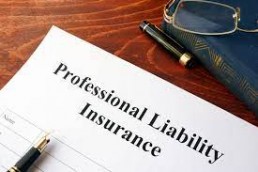
The Benefits of Liability Insurance
While you may already have some insurance in place, such as commercial property insurance, commercial auto insurance or home-based business insurance, these types of policies , however will not necessarily help to protect your business from any legal concerns you may be faced with.
Since there are various types of liability scenarios you may encounter, there are in turn, specific types of liability insurance packages to help support your ongoing business needs.
Commercial General Liability (CGL) Coverage
This first type of insurance is a key liability insurance staple for any small business owner to carry. Commercial General Liability insurance protects small businesses from incidents where customers, suppliers or other individuals experience bodily injuries as a result of engaging with your business.
Additionally, CGL can also help in instances where an employee is found responsible for inflicting damage on property belonging to a third party. Ultimately, having this type of insurance in place is highly recommended for a wide range of small business owners.
Product Liability Coverage
As the name states, Product Liability Insurance can help small businesses deal with the high costs associated with any property damage or bodily harm that can occur as a result of the products that their business is manufacturing and/or selling.
If this type of service reflects your daily business operations, then this is a strong indication that you will benefit from having this type of insurance coverage.
Professional Liability Coverage
This final type of liability insurance coverage exists to protect businesses from lawsuits that could be filed against them, in the event a client encounters a financial loss as a result of any actions that are deemed wrongful on the part of the business owner.
Lawsuit claims can range from clients experiencing a deficit in income due to contractual project deadlines are not fulfilled or when a business does not meet the previously agreed upon project or service expectations and financial losses occur. When small business owners find themselves in this type of situation, this means that they could suffer huge financial losses of their own.
If you are running a business that offers services or products for a fee, then Professional Liability coverage will definitely be worth an extra consideration and help protect you from these types of outcomes.
In the end, choosing the best liability insurance coverage really does depend on the nature of your small business and the services and products you are providing.
That said, if you are currently undecided about which type of liability insurance you need, Commercial General Liability insurance can serve a wide range of small business needs, and is a great place to start.
As a small business owner, you can then discuss your needs with an insurance agent and they can help you to identify which coverage will align the most accurately with your specific business interests.
Contact Leaders Insurance for more information on small business liability insurance coverage and let us help to ensure you are fully protected in all essential areas of your business.
Do I Need Separate Insurance for My RV/Trailer?
Do I Need Separate Insurance for My RV/Trailer?
Do you have an RV or travel trailer that you are looking forward to using this year? If so, one piece of important information to be aware of before you head out on the open road, is whether or not you should purchase separate insurance.The answer is that, yes, it is recommended that you do obtain insurance for your travel trailer or RV needs. Since this can be a large financial investment, having the right coverage can help you to feel protected in a number of key ways.
Of course, there are also various manners you may be travelling, including motor homes or RVs, and travel trailers, so opting for the best insurance features for your specific needs is also very important.
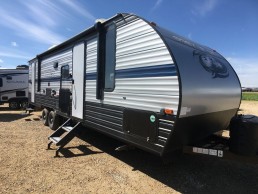
Motor Homes & RVs versus Travel Trailer Insurance Coverage Motor Homes & RV Coverage
Similarly, to purchasing car insurance, you can purchase insurance for your motor home or RV. How this differs however, is that the type of coverage you will get for these types of travel vehicles, will also include areas such as contents and standard equipment that both fall outside the scope of your other vehicle insurance coverage.
While, ‘contents’ coverage involves items such as linens, kitchen items such utensils, dishes, etc, under the ‘standard equipment’ category, you are looking at insuring the items that are attached to your motor vehicle, including appliances.
Travel Trailer (& Fifth Wheel) Coverage
The Insurance Corporation of BC (ICBC) offers coverage known as ‘Vehicle Travel Protection’ and it includes packages that meet your auto towing needs. This includes, campers, trailers, etc, ultimately the vehicles that will be towed, so if this reflects your needs, it is worth looking into.
As you can see, these policies offer a wide range of coverage for your vehicle travel needs. That said, it is best to enquire about the specifics of these packages and to learn more about what is coverage, as well as about any existing exclusions.
Home Insurance Coverage
It is important to also note, that your home insurance coverage may relate to some of the areas, while you are traveling in a mobile home or fifth wheel vehicle. However, there will be some limitations. Again, is it a good idea to go over the details with an insurance agent, and find out what specific additional coverage you may need to purchase, in order to protect all of your travel contents, equipment, and the vehicle, itself.
Additional Travel Vehicle Coverage Considerations Vehicle Storage Coverage
If you are storing your vehicle, there is specific coverage for this instance. If this is a living space, then special coverage exists for this also and will be worth considering as an addition to your policy.
Accidental Loss & Collision Insurance
Of course, you may also want to consider taking out additional coverage for accidental loss or destruction of your mobile home or trailer. For example, a range of events that can cause damage to your vehicle, such as storms, fire and smoke, vandalism or theft, encounters with animals, and collisions with other vehicles.
Replacement packages also exist and can be purchased to help with the cost of a comparable replacement of the entire vehicle.
If you are using your motor home on a full time bases, there is another comprehensive package to consider. This type of coverage is designed to provide personal liability, protect personal contents, as well as additional living expenses that may be necessary for all year round mobile or trailer occupancy.
With all of the insurance options available, insurance agents well-versed in this field, can help ensure you have the best possible package for your intended motor home, RV, or travel trailer needs.
In the end, it is always best to opt for insurance, in order to protect your financial investment. Contact Leaders Insurance to discuss your RV and Travel Trailer insurance coverage needs.
Then, let all of your road travel and lifestyle adventures begin.
